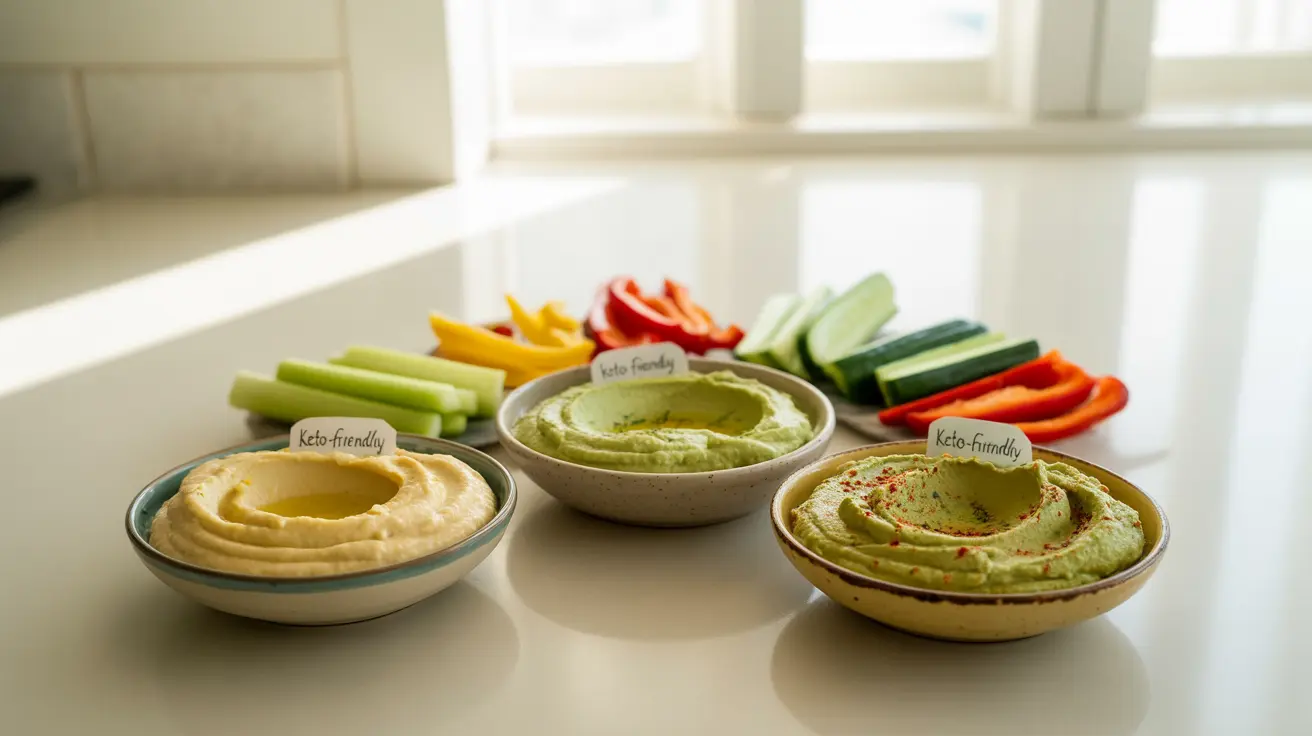For those following a ketogenic diet, the question of whether hummus fits into their low-carb lifestyle is a common concern. Traditional hummus, made primarily from chickpeas, contains carbohydrates that require careful consideration when maintaining ketosis. This comprehensive guide will help you understand how to incorporate hummus into a keto diet safely or find suitable alternatives.
Understanding Hummus and Its Carbohydrate Content
Traditional hummus is made from chickpeas (garbanzo beans), tahini, olive oil, lemon juice, and seasonings. While it's rich in healthy fats and protein, the chickpea base contributes significant carbohydrates that can impact ketosis.
A standard 2-tablespoon (28g) serving of traditional hummus contains approximately:
- 4-6 grams of total carbohydrates
- 1-2 grams of fiber
- 3-4 grams of net carbohydrates
- 2-3 grams of protein
- 4-5 grams of healthy fats
Can You Eat Hummus on Keto?
Yes, you can include hummus in a ketogenic diet, but portion control is crucial. Since most keto dieters aim to stay under 20-25 grams of net carbs daily, a small serving of traditional hummus can fit within these limits when carefully measured.
Recommended Portion Sizes for Keto
To maintain ketosis while enjoying hummus, stick to these guidelines:
- Limit portions to 1-2 tablespoons per serving
- Count the net carbs toward your daily total
- Consider having hummus as an occasional treat rather than a daily staple
Keto-Friendly Hummus Alternatives
Several low-carb alternatives can satisfy your hummus cravings while better aligning with keto macros:
Cauliflower Hummus
Made with roasted cauliflower instead of chickpeas, this version provides similar texture with significantly fewer carbs.
Zucchini Hummus
Using raw zucchini creates a creamy dip that's extremely low in carbohydrates while maintaining a familiar texture.
Avocado Hummus
Combining avocado with traditional hummus ingredients creates a higher-fat, lower-carb alternative that's perfect for keto.
Smart Ways to Enjoy Hummus on Keto
When incorporating hummus into your keto diet, pair it with these low-carb options:
- Raw celery sticks
- Cucumber slices
- Bell pepper strips
- Low-carb crackers
- Cheese crisps
Store-Bought vs. Homemade Hummus for Keto
Homemade hummus often provides better control over ingredients and carb content. When making keto-friendly hummus at home, you can:
- Adjust the ratio of ingredients to favor lower-carb components
- Add extra healthy fats through olive oil
- Control the quality of ingredients
- Avoid unnecessary additives found in some commercial brands
Frequently Asked Questions
Is hummus allowed on a keto diet and how much can I eat without breaking ketosis?
Yes, hummus is allowed on keto in moderation. To avoid breaking ketosis, limit consumption to 1-2 tablespoons (28g) per serving, which contains 3-4 grams of net carbs.
What are the net carbohydrates in a typical serving of hummus?
A typical 2-tablespoon serving of traditional hummus contains 3-4 grams of net carbohydrates (total carbs minus fiber).
What are some low-carb or keto-friendly alternatives to traditional chickpea hummus?
Popular keto-friendly alternatives include cauliflower hummus, zucchini hummus, and avocado-based versions, all of which provide similar texture and flavor with fewer carbs.
How should I pair hummus with foods to keep it keto-friendly?
Pair hummus with low-carb vegetables like celery, cucumber, and bell peppers, or use keto-friendly crackers and cheese crisps as dippers.
Does homemade hummus have different carb content compared to store-bought versions for keto diets?
Homemade hummus can have lower carb content if you adjust the chickpea ratio and add more healthy fats. Store-bought versions may contain additional carbs from preservatives and additives.




